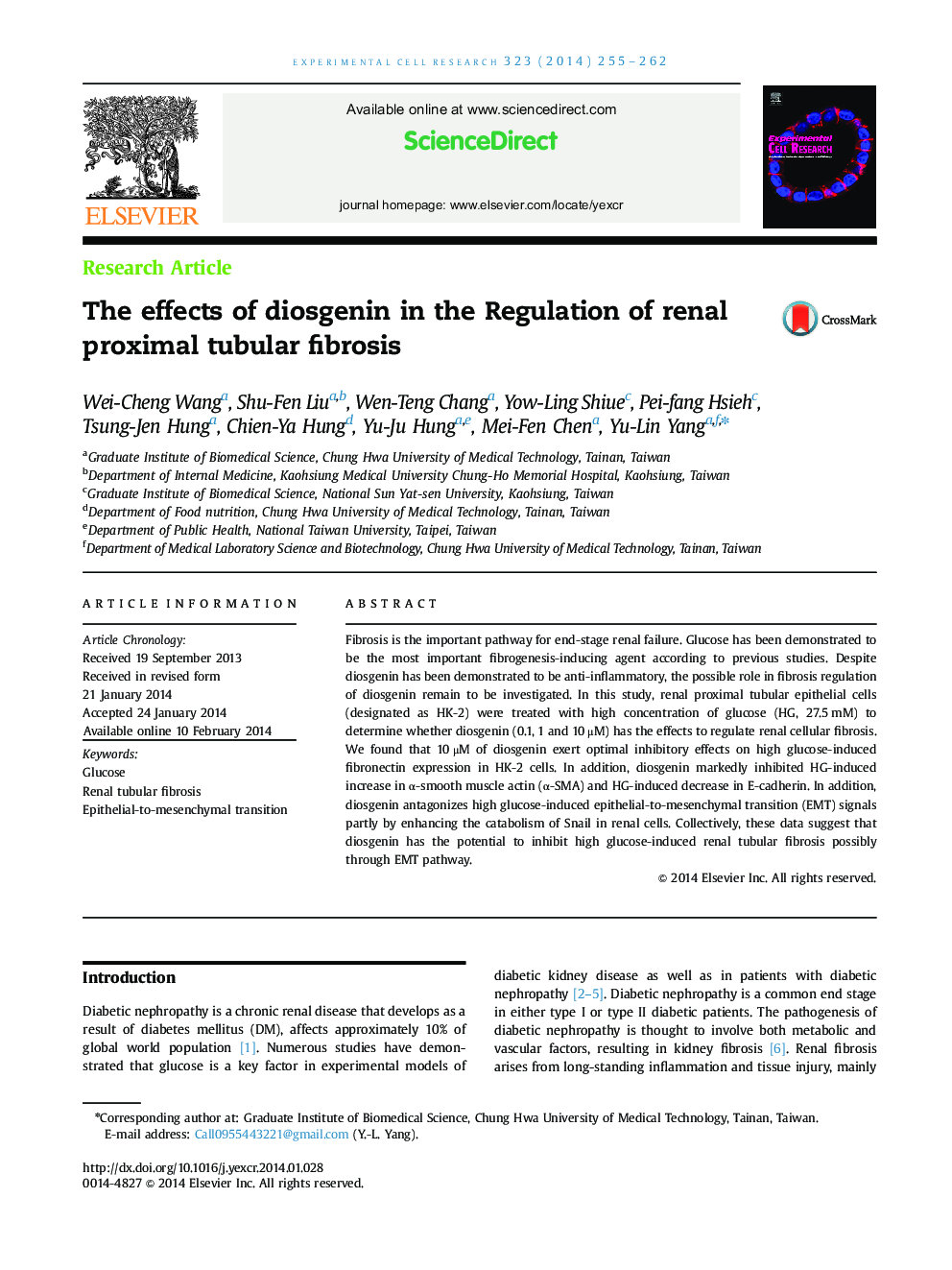| Article ID | Journal | Published Year | Pages | File Type |
|---|---|---|---|---|
| 10904049 | Experimental Cell Research | 2014 | 8 Pages |
Abstract
Fibrosis is the important pathway for end-stage renal failure. Glucose has been demonstrated to be the most important fibrogenesis-inducing agent according to previous studies. Despite diosgenin has been demonstrated to be anti-inflammatory, the possible role in fibrosis regulation of diosgenin remain to be investigated. In this study, renal proximal tubular epithelial cells (designated as HK-2) were treated with high concentration of glucose (HG, 27.5 mM) to determine whether diosgenin (0.1, 1 and 10 μM) has the effects to regulate renal cellular fibrosis. We found that 10 μM of diosgenin exert optimal inhibitory effects on high glucose-induced fibronectin expression in HK-2 cells. In addition, diosgenin markedly inhibited HG-induced increase in α-smooth muscle actin (α-SMA) and HG-induced decrease in E-cadherin. In addition, diosgenin antagonizes high glucose-induced epithelial-to-mesenchymal transition (EMT) signals partly by enhancing the catabolism of Snail in renal cells. Collectively, these data suggest that diosgenin has the potential to inhibit high glucose-induced renal tubular fibrosis possibly through EMT pathway.
Related Topics
Life Sciences
Biochemistry, Genetics and Molecular Biology
Cancer Research
Authors
Wei-Cheng Wang, Shu-Fen Liu, Wen-Teng Chang, Yow-Ling Shiue, Pei-fang Hsieh, Tsung-Jen Hung, Chien-Ya Hung, Yu-Ju Hung, Mei-Fen Chen, Yu-Lin Yang,
